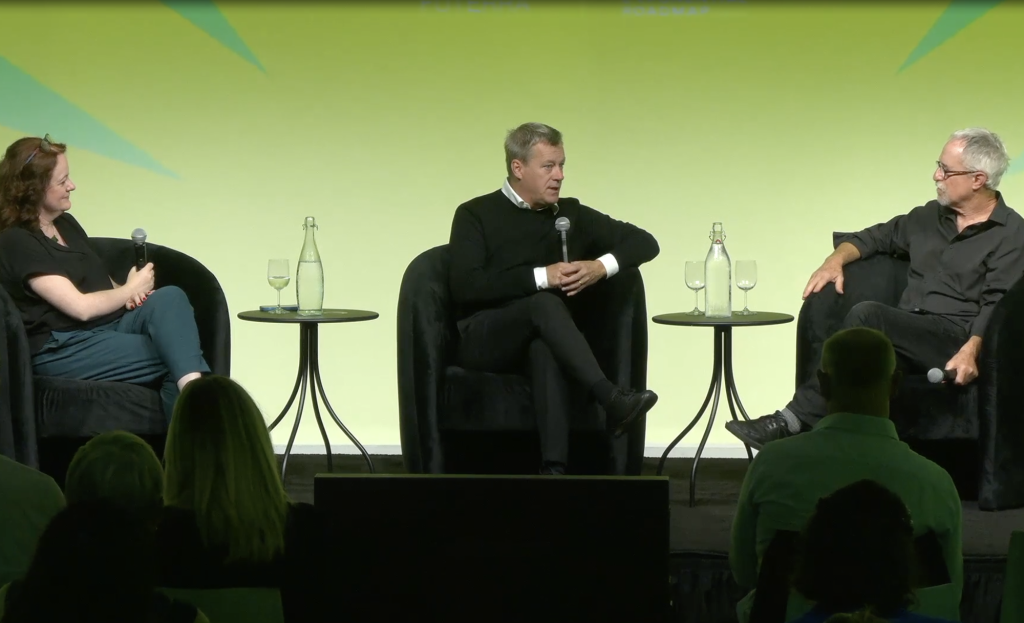IKEA’s CEO explains why the C-suite still matters in the climate fight
“We need all leaders to collaborate because we’re in a hurry," says Jesper Brodin. Read More

At this year’s Climate Week in New York City, one theme stood out amid the 1,000-plus events and 100,000 attendees: leadership. Not just any leadership, but the kind that comes from the very top.
On our Two Steps Forward podcast, recorded live at Solutions House, my co-host Solitaire Townsend and I sat down with Jesper Brodin, CEO of IKEA and chair of The B Team, to explore the role of corporate leaders in accelerating the sustainability transition. What emerged was a candid conversation about agency, accountability and belief.
Fighting doom, building agency
For decades, sustainability professionals have debated whether CEO buy-in is indispensable. I argued yes: Leaders such as Walmart’s Lee Scott, Unilever’s Paul Polman and GM’s Mary Barra set bold courses that changed both their companies and their industries.
Townsend countered that while CEO support is transformative, it’s not the only path. “If your CEO isn’t on board,” she said, “go and engage your peers in middle management. You might find there’s a lot more power sitting there than you think.”
Brodin, who has spent three decades at IKEA, took the long view. “The solution on how to resolve climate change is an economic and technical transformation,” he said. “We need all leaders to collaborate because we’re in a hurry.” But he acknowledged that belief remains the hardest nut to crack — convincing skeptics that “climate smart is resource smart is cost smart.”
Proof in practice
IKEA has tried to make that case in tangible ways. Since the Paris Agreement, the company has grown revenues by 24 percent while cutting absolute emissions — Scopes 1, 2 and 3 — by more than 30 percent. Renewable energy investments alone have saved $114 million. Spare-parts programs and secondhand platforms extend product life cycles, turning circularity from concept into business model.
It’s a reminder that climate action isn’t charity or compliance — it’s competitiveness. Yet Brodin noted that half of CEOs still hesitate to speak publicly, wary of being accused of greenwashing. The result is a strange paradox: Commitment is strong, but confidence is shaky.
Leadership imperative
So, do CEOs still matter? Brodin believes they do, profoundly. “We have long passed where sustainability belongs to the CSO,” he said. “Today, all leaders need digital competence and sustainability competence. It’s no longer an expertise field.”
That shift — from niche to norm — may be the legacy Brodin leaves as he steps down from IKEA after 30 years. The company’s trajectory suggests there’s “no way back,” as he put it. The challenge for other CEOs is whether they’ll find the courage to not only act, but to say out loud why they’re acting.
The Two Steps Forward podcast is available on Spotify, Apple Podcasts, YouTube and other platforms — and, of course, via Trellis. Episodes publish every other Tuesday.
















